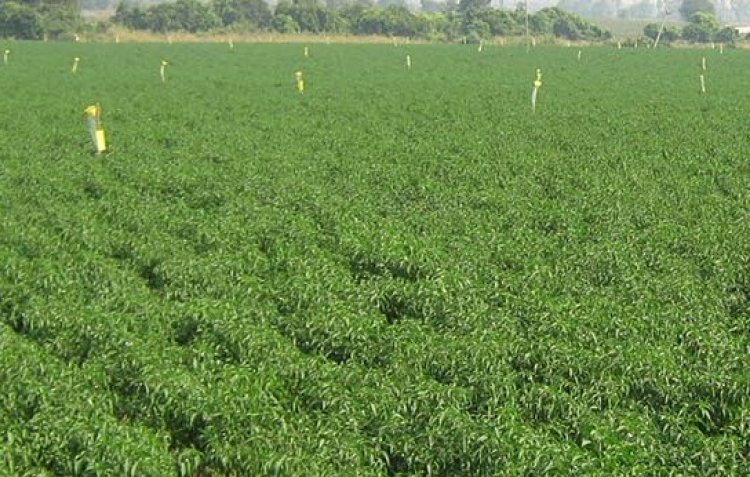Use right agri-inputs in correct quantities: RKPA
On the occasion of the National Youth Day, RKPA asked the chilli growers of Andhra Pradesh and Telangana to unite and jointly fight regulators who are the stumbling blocks in getting quality agri-input. It also advocated the use of modern agri-tech practices to tackle invasive pests like Thrips parvispinus.

On the occasion of the National Youth Day (January 12), the Rashtriya Kisan Progressive Association (RKPA) asked the chilli growers of Andhra Pradesh and Telangana to unite and jointly fight regulators who are the stumbling blocks in getting quality agri-input. It also advocated the use of modern agri-tech practices to tackle invasive pests like Thrips parvispinus.
This was stated in a press release issued by RKPA, a consortium of national progressive farmers’ organizations that claims to have a reach to 16 states and a membership of around 1.37 lakh farmers nationally representing 5 million farmers.
The new invasive pest has severely impacted the red chilli crop in certain districts of the two states by affecting the plants at the flowering stage and stunting their growth. Heavy rains in the recent months in the growing areas have further compounded the problem.
RKPA said the "solution lies in the use of the right agri-inputs like seeds, fertilizer and appropriate pesticides in (the) correct quantities."
Besides, “the timing of applying pesticide is also key for proper growth of the crop and tackle invasive pests like Thrips parvispinus. Use of modern technologies, including drones, robotics, and AI will help in uniform spraying of pesticides,” said the release.
According to estimates, the two states — Andhra Pradesh (43.5 per cent) and Telangana (23.5 per cent) — account for over 67 per cent of the country’s chilli production.
The problem of the new pest 'thrips' was noticed in early 2020 in red chilli crops in Telangana and Andhra Pradesh. The pest population flared up as early as October 2021 with both adults and young ones feeding on the ovaries of the flowers and making them unfit for fruiting, heightening fears of heavy flower drop and yield losses.
Due to these concerns, the chilli prices in the past two to three weeks have soared by over 30 per cent across various markets in Telangana and Guntur, said the release.



 Join the RuralVoice whatsapp group
Join the RuralVoice whatsapp group







































